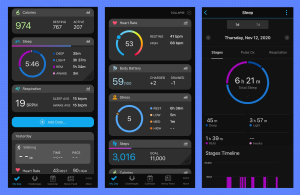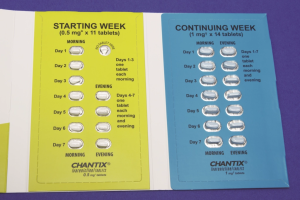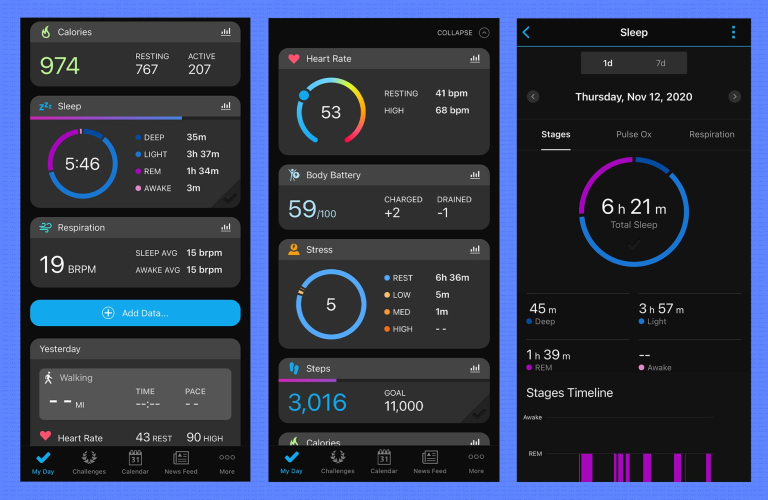Boston Marathon psychology unveils the intricate mental landscape that runners navigate as they prepare for and compete in one of the world’s most iconic marathon events. Beyond the physical demands of running 26.2 miles, this phenomenon highlights the profound psychological effects on marathon participants, where mental health and emotional resilience play critical roles. Runners often draw on deep reservoirs of running motivation and mental toughness in marathons, fueling their drive to cross the finish line. The psychological benefits of running, such as achieving a sense of accomplishment and boosting self-esteem, are particularly apparent in a competitive environment like the Boston Marathon. As athletes engage in Boston Marathon training, they cultivate not just endurance but also a strong mindset that enables them to overcome challenges and achieve personal goals, showcasing the powerful connection between the mind and body.
Exploring the mindsets of those who partake in the Boston Marathon reveals an engaging examination of psychological endurance in long-distance running. As participants push through physical barriers, they face an array of mental challenges that contribute to their overall marathon experience. The journey encompasses not just the goal of completing a race, but also deeper insights into mental resilience, emotional health, and self-discovery. With every stride, runners seek to unite their emotional landscapes with physical capability, enhancing their understanding of personal motivation and determination. This exploration sheds light on the transformative nature of running, where athletes learn to navigate their thoughts and feelings as they prepare for one of life’s most grueling yet rewarding challenges.
The Psychological Benefits of Running
Running, particularly long-distance events like marathons, is widely recognized for its mental health benefits. The act of running releases endorphins, often referred to as ‘feel-good’ hormones, which can significantly boost mood and alleviate symptoms of anxiety and depression. Regular running fosters resilience and mental toughness, allowing individuals to confront their personal challenges head-on. Notably, runners frequently report improved self-esteem and reduced levels of stress, showcasing how physical activity is intricately connected to emotional well-being.
Moreover, participating in marathons can add to these psychological benefits through structured goals and achievements. Completing a long-distance run not only requires rigorous training but also cultivates a mindset geared towards perseverance and discipline. The psychological journey of pushing one’s physical limits enhances motivation and provides an enduring sense of accomplishment. Thus, the psychological benefits of running encompass far more than physical fitness; they extend into profound emotional and psychological realms.
Boston Marathon Training: A Test of Mental Toughness
Training for the Boston Marathon represents a unique intersection of physical endurance and mental strength. Runners engage in extensive preparation that challenges their commitment and resilience, embodying the true spirit of mental toughness in marathons. This rigorous training process involves pushing boundaries, overcoming fatigue, and often battling self-doubt. Each mile run prepares the athlete not only physically but also equips them with the mental fortitude required to conquer the 26.2-mile race.
As runners progress in their training, they learn to navigate both physical and psychological hurdles. The Boston Marathon’s reputation adds an extra layer of pressure and expectation, motivating runners to not only succeed in the race but also in their personal battles. This dual experience of testing one’s limits and cultivating a positive mental attitude is what makes the Boston Marathon a pursuit of perseverance that transcends beyond mere physical accomplishment.
Exploring the Mind-Body Connection in Marathon Running Techniques for Building Running Motivation and Mental Toughness
The intricate bond between the mind and body is pivotal in marathon running, particularly during an iconic event like the Boston Marathon. Each runner brings unique motivations, whether driven by personal goals or the desire to honor loved ones. Training for such an event cultivates not only physical endurance but also a solid psychological grounding, allowing runners to harness their mental strength to cope with the demands of rigorous training and competition.
Understanding this mind-body connection enables runners to utilize psychological techniques such as visualization, goal-setting, and positive self-talk, all aimed at enhancing running motivation. By focusing on these strategies, participants can prime themselves for the physical and emotional challenges of marathon running. As they lace up their shoes for the Boston Marathon, this deep mental preparation becomes as significant as the physical training they undergo.
Running and Its Therapeutic Impact on Mental Health
Engaging in marathon training and competition offers therapeutic benefits that reach far beyond the physical realm. For many runners, particularly those participating in high-stakes events like the Boston Marathon, running serves as a form of therapy that helps process life events, grief, or stress. The act of moving through space while focusing on one’s breath allows individuals to cultivate mindfulness—a state that is highly beneficial for mental health.
Furthermore, the community support found in marathon culture contributes significantly to mental wellness. Runners often bond over shared experiences, training sessions, and completing races together, offering a sense of belonging. This interconnectedness creates a support system that reinforces motivation and combats feelings of isolation, thereby promoting overall mental health.
Achieving Mental Wellness Through Marathon Participation
Participating in a marathon can dramatically improve one’s mental wellness. Stepping up to the starting line of the Boston Marathon symbolizes an individual’s commitment to self-improvement, mental discipline, and personal growth. This commitment can lead to a profound transformation, fostering a sense of achievement that positively affects mental health. Each successful training run and the subsequent completion of the marathon solidify the runner’s self-image as someone capable of overcoming obstacles.
Moreover, the shared experiences amongst runners create a community rich in encouragement and camaraderie. The emotional highs and lows experienced throughout training and the marathon itself can lead to lasting friendships and a sense of belonging, which are vital for mental wellness. Thus, the Boston Marathon is not just a race; it is a pathway to improved psychological health.
The Role of Community Support in Marathon Running
Community support plays an instrumental role in the marathon experience, especially when striving for significant mental health benefits. Joining a running group or training alongside others fosters a motivating environment where participants can inspire each other through shared goals. The emotional backing received from fellow runners often contributes to both the physical performances on race day and the overall psychological satisfaction derived from the experience.
During the Boston Marathon, this sense of community is palpable. Spectators line the route, cheering on participants and offering words of encouragement, which bolsters runners’ spirits in times of fatigue. For many, the cheers become a source of strength that carries them toward the finish line, proving that the journey is not only an individual pursuit but one that is strengthened by togetherness.
Conquering Fears Through Marathon Preparation
Training for events such as the Boston Marathon requires overcoming numerous fears and anxieties, both physical and psychological. Many aspiring marathoners grapple with fears of failure, injury, or not meeting personal expectations. However, consistently facing these fears through training helps to foster a resilient mindset, equipping runners with the tools necessary not only to tackle the marathon but also to handle life’s broader challenges.
Each mile run during their training sessions serves as a testament to their ability to confront personal doubts. As they push through mental barriers and learn to trust themselves, runners emerge with a greater sense of self-efficacy and confidence that transcends the world of athletics. Thus, the process of preparing for a marathon becomes a powerful vehicle for personal growth and emotional stability.
Why the Boston Marathon Captivates the Mind and Spirit
The Boston Marathon stands as one of the most prestigious and storied events in the running community, capturing the hearts and minds of participants and spectators alike. Its historical significance, combined with the inspirational stories of those who run it, adds layers of depth to the experience. For many runners, crossing the finish line symbolizes not just the completion of a grueling physical challenge, but also embodies the culmination of personal struggles, triumphs, and commitments.
In a broader sense, the Boston Marathon encapsulates the journey of perseverance, dedication, and community, making it a rich tapestry of human emotions. Runners are not just racing against the clock; they are also racing against their own fears and insecurities, turning the marathon into an anthem of personal discovery and resilience.
The Transformational Experience of Completing a Marathon
Completing a marathon can be a transformative experience, altering one’s self-identity and aspirations significantly. As runners cross the finish line of the Boston Marathon, they often reflect on the journey that led them there—the countless hours of training, the sacrifices made, and the psychological barriers overcome. This moment of triumph invigorates a profound sense of accomplishment and pride that resonates deeply within.
After years of dedicating themselves to the grueling preparation involved, many runners feel a renewed sense of purpose. Achieving such a significant milestone not only boosts self-esteem but also inspires future endeavors, showcasing how the act of running can instill hope and determination. For many, the Boston Marathon is just the beginning of an ongoing journey towards health and resilience.
Frequently Asked Questions
What psychological benefits of running are highlighted in the Boston Marathon experience?
The Boston Marathon offers numerous psychological benefits of running, including improved mental health, enhanced self-esteem, and emotional resilience. Participants often report feelings of accomplishment and the ability to confront personal challenges, as running provides an opportunity for self-reflection and goal setting. Completing such a monumental race can also foster a sense of community and belonging, further enhancing mental well-being.
How does marathon mental health impact performance in the Boston Marathon?
Marathon mental health plays a crucial role in performance during the Boston Marathon. Runners with a strong mental focus and positive mindset are often able to push through physical pain and fatigue, demonstrating greater mental toughness. This psychological preparation can lead to improved race outcomes, as those who cultivate a resilient mindset tend to handle stress and anxiety more effectively.
What motivates runners psychologically to participate in the Boston Marathon?
Psychological motivation for running the Boston Marathon varies greatly among participants and can include personal affirmations, fundraising efforts, or honoring loved ones. Many runners seek to overcome personal obstacles, using the marathon as a transformative experience that reinforces their self-identity and capabilities. The journey to the finish line is often driven by deep personal significance.
How can Boston Marathon training affect psychological resilience in runners?
Boston Marathon training significantly enhances psychological resilience by requiring consistent discipline and commitment. Runners develop mental toughness through their training regimens, equipping them with skills to handle race-day challenges. This rigorous mental preparation helps individuals manage stress, fight self-doubt, and cultivate a strong sense of determination, which is essential for success in such a demanding race.
In what ways does running motivation shift during the Boston Marathon?
During the Boston Marathon, running motivation can shift dramatically due to the intense physical and emotional experience. As runners encounter various challenges throughout the race, their motivation may transition from personal achievement to sheer survival or completion. Many find strength in the supportive atmosphere, utilizing the encouragement of crowds and fellow runners to reignite their initial passion and drive.
How does the Boston Marathon create a sense of identity and purpose through running?
The Boston Marathon creates a profound sense of identity and purpose for many runners, allowing them to connect deeply with their personal stories and aspirations. For participants, the race is often a representation of long-term goals, sacrifices, and triumphs. By crossing the finish line, runners solidify their identity as marathoners, reinforcing a sense of accomplishment that resonates beyond the race itself.
What role does mental toughness play in overcoming barriers during the Boston Marathon?
Mental toughness is integral to overcoming barriers during the Boston Marathon. Runners face not only physical challenges but also psychological hurdles such as self-doubt, fatigue, and anxiety. Those who cultivate their mental resilience are better equipped to manage these challenges, enabling them to push through difficult moments, maintain focus, and ultimately succeed in completing the race.
Can running in the Boston Marathon improve overall mental health?
Yes, running in the Boston Marathon can significantly improve overall mental health. Engaging in such a monumental event fosters feelings of accomplishment, reduces stress, and enhances mood. The collective experience of training, competing, and achieving personal goals also builds self-esteem and promotes a sense of community, all contributing positively to mental well-being.
| Key Point | Description |
|---|---|
| The Role of Psychological Support | Jeff Brown, the lead psychologist for the Boston Marathon, helps evaluate runners in distress after finishing. |
| Diverse Motivations for Running | People run for personal reasons, including honoring loved ones, facing health issues, or fundraising. |
| Emotional Impact of Completing a Marathon | Finishing provides runners with a sense of achievement and can lead to significant emotional reactions. |
| Personal Transformation and Heroism | Completing a marathon can shift self-perception and elevate one’s status among peers. |
| Unique Experiences of Runners | Each runner has a different psychological and emotional journey, making marathons uniquely personal. |
Summary
Boston Marathon psychology delves into the complex emotional and mental aspects surrounding runners’ experiences. It reveals that the reasons behind participating in this legendary race often transcend mere physical fitness, showcasing deeply personal motivations that drive them to the finish line. This multifaceted experience involves triumphs, struggles, and personal growth that many runners cherish long after the race concludes.









